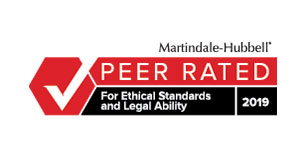Fighting for Victims of Defective Hernia Mesh
When tissue that is meant to hold organs in place tears, those organs begin to push through the tissue. This painful condition is known as a hernia. For many, the seemingly simple fix is to have a surgeon implant a plastic mesh screen to hold organs in place.
Unfortunately, many hernia mesh products have been found to be defective, causing severe side effects and often requiring additional surgeries.
At Prim Law Firm, PLLC, our skilled product liability attorneys based in Hurricane fight for compensation for West Virginians injured by these defective medical products. We will press for the damages you deserve to address the harm you’ve suffered.
Defective hernia mesh led to numerous painful injuries
Synthetic mesh, typically made of a type of plastic, obviously isn’t a substance normally found in the body.
Since the 1980s, when mesh began to be widely used in hernia repairs, a rash of side effects has emerged: pain, infection, recurrence of hernias, adhesions (scar tissue buildup), obstruction (blockage of the intestines), perforations (holes poked by the mesh in nearby organs), and numerous other complications.
While some hernia mesh products have been recalled or withdrawn from the market in response to complaints of side effects, synthetic mesh is still the dominant treatment for hernias, although human or animal tissue has been used as an alternative.
Some of the manufacturers of synthetic hernia mesh include Atrium (C-Qur and Proloop), Covidien (Parietex), Bard/Davol, and Ethicon/Johnson & Johnson. To know which type of mesh was used in your surgery, you would need access to your medical records.
If you had to get a revision surgery due to side effects from an implanted hernia mesh product, you should consult with an experienced product liability lawyer to advise on your case and review your medical records.
Skilled litigators make a difference in your case
Despite the countless reported side effects and revision surgeries required by defective synthetic mesh products, very few models have been recalled.
A Class I recall was issued by the Food and Drug Administration (FDA) for the Composix Kugel Patch manufactured by C.R. Bard in 2006, and Johnson & Johnson-owned Ethicon withdrew its Physiomesh products from the market in 2016. Questions about the safety of the Atrium C-QUR mesh over sterility and manufacturing defects persist.
But other hernia mesh products were withdrawn quietly from the market and replaced with newer models, with no notice or compensation to the victims carrying these dangerous products in their bodies.
Thousands of hernia mesh lawsuits have been filed and are set to go to trial in the next couple of years.
If these manufacturers are to be held accountable for their defective products, it likely won’t be because of federal regulation or recall — it will be because injury lawyers and victims fought back and hit them where it hurts, with lawsuits and verdicts that affect their profits.
If you’ve been injured by a defective hernia mesh product, our personal injury attorneys will seek to hold the negligent manufacturer accountable and responsible for your damages.
Our Experienced Product Liability Attorneys Fight for Your Compensation
At Prim Law Firm, PLLC, we fight back against companies that put profit over consumer safety through defective hernia mesh and other products. Schedule a free consultation in our Hurricane law firm by calling 304-201-2425 or contact us online.




